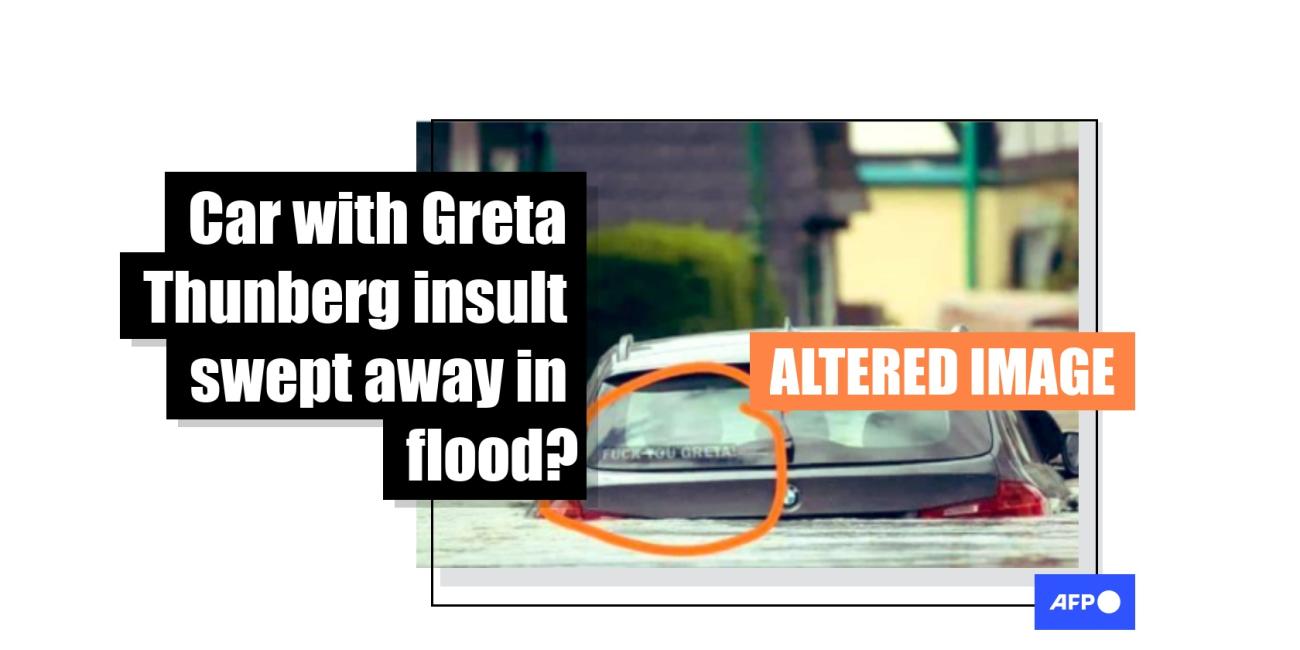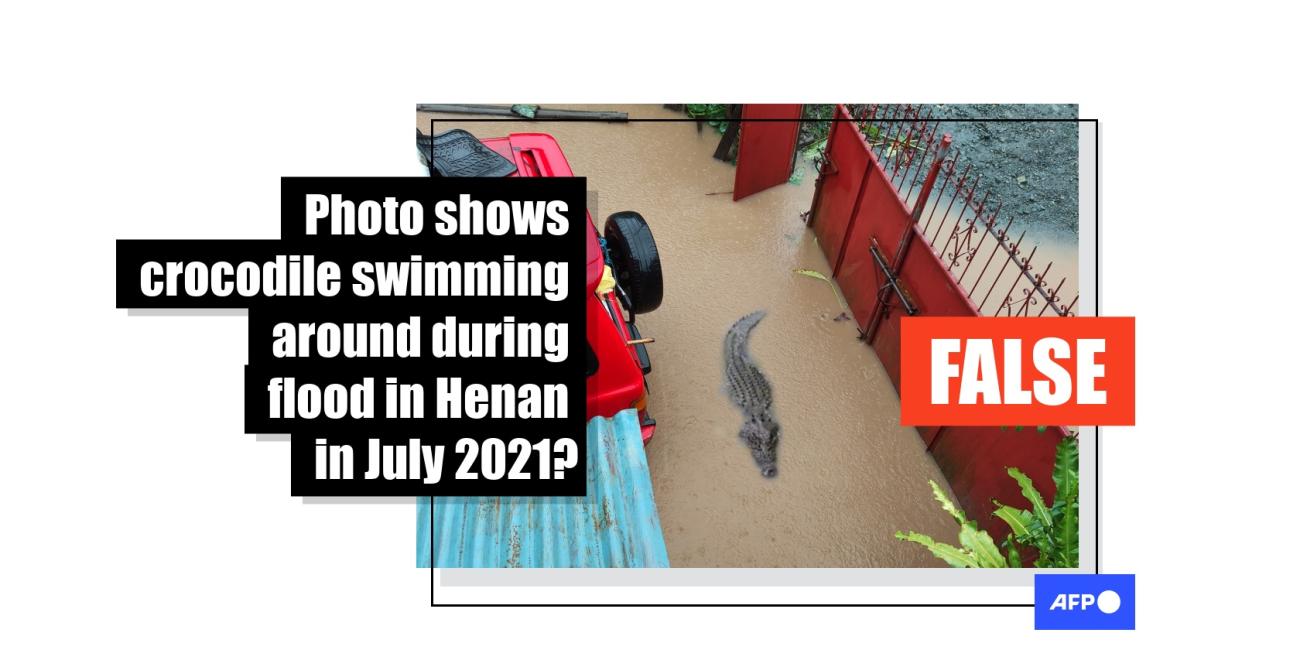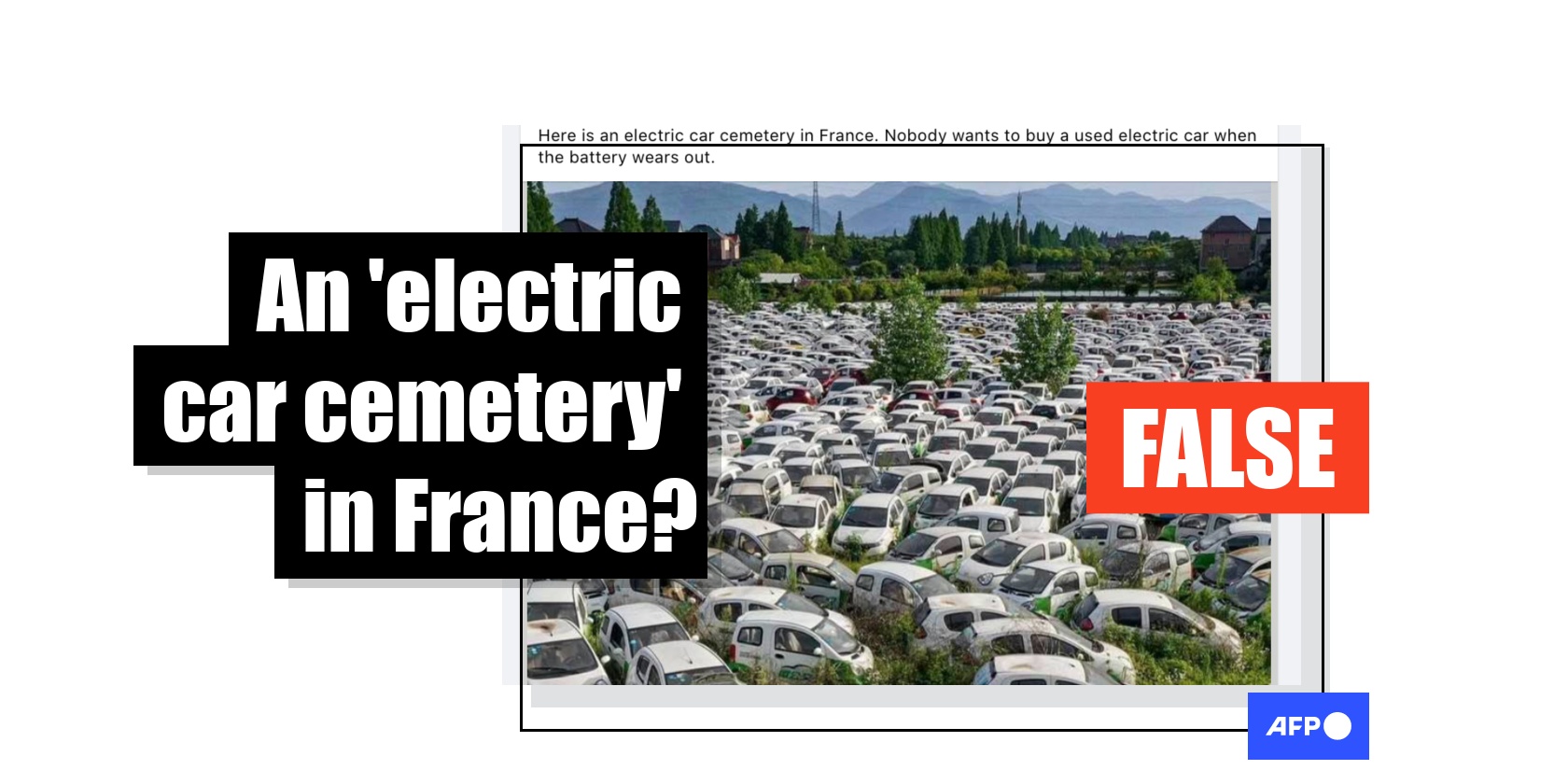
This photo does not show an 'electric car cemetery' in France
- This article is more than one year old.
- Published on July 13, 2021 at 05:21
- Updated on July 15, 2021 at 11:48
- 4 min read
- By Elias HUUHTANEN, AFP Finland, AFP Australia
Copyright © AFP 2017-2024. Any commercial use of this content requires a subscription. Click here to find out more.
"Here is an electric car cemetery in France. Nobody wants to buy a used electric car when the battery wears out," reads this Facebook post published on July 7. It has since been shared more than 1,000 times.
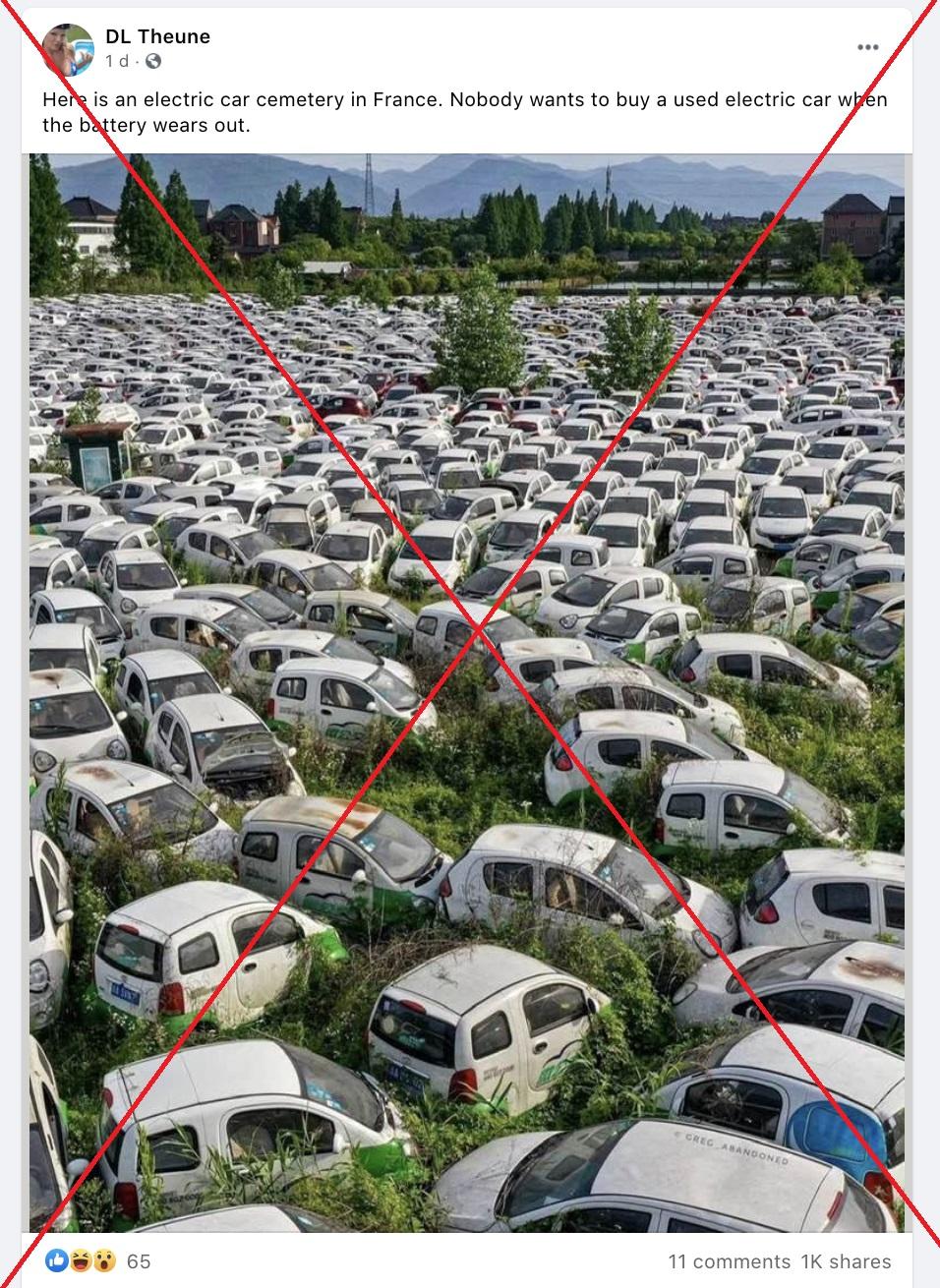
The same photo was shared alongside similar claims appear on Facebook here and here, and in this tweet shared more than 4,000 times.
"Green madness. Electric cars belonging to the city of Paris. No one will buy them because of the cost of the replacement battery. Who will dispose of this junk, especially the batteries?" the tweet reads.
However, the claim is false. A reverse image search and keyword searches found similar photos published by Chinese state-owned newspaper People's Daily here on April 25, 2019. The article refers to the photos, credited to Chinese state news agency Chinanews, as "a car cemetery in Hangzhou".
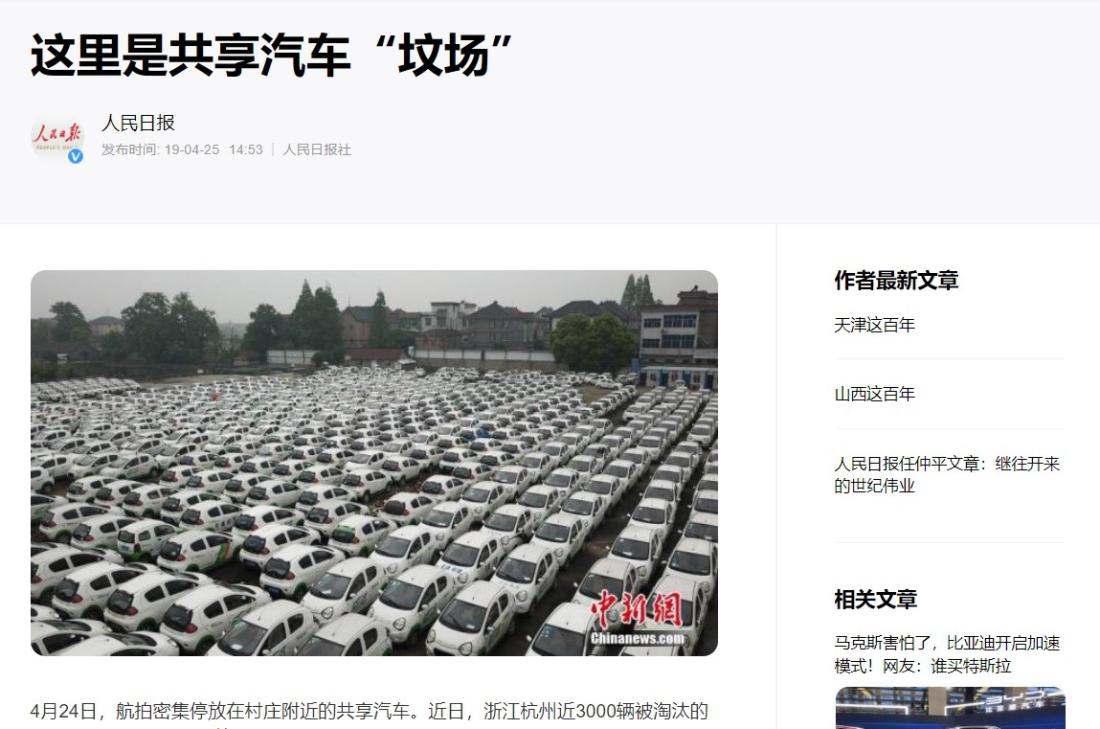
According to the article, the vehicles are "new energy-shared cars abandoned in a car park near Hangzhou city along the Qiantang River".
The cars appear to be electric cars manufactured by China's Kandi Technologies Group. In 2015, China's state-owned newspaper Global Times identified similar vehicles with the same logos and white-green paint in Hangzhou as having been produced by Kandi.
Identical visual clues can be seen in the photo circulating in misleading posts (L) and Chinanews's image (R), including buildings in the background, an electicity pylon and logos on the cars.
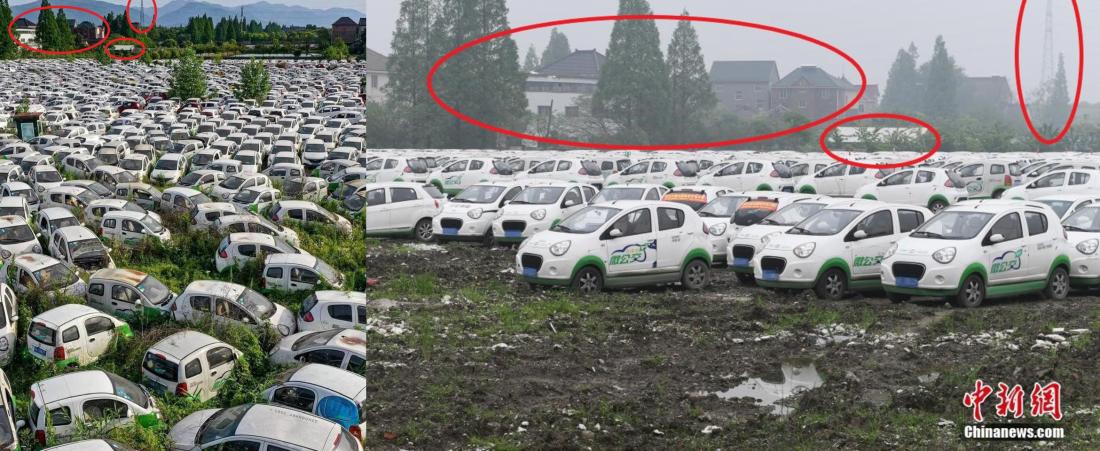
The exact location of the image can also be confirmed through the satellite images of the Shuangpuzhen area on Zoom Earth, where the parking lot and its cars can be seen.
The satellite images show pools of water and the buildings in the background.
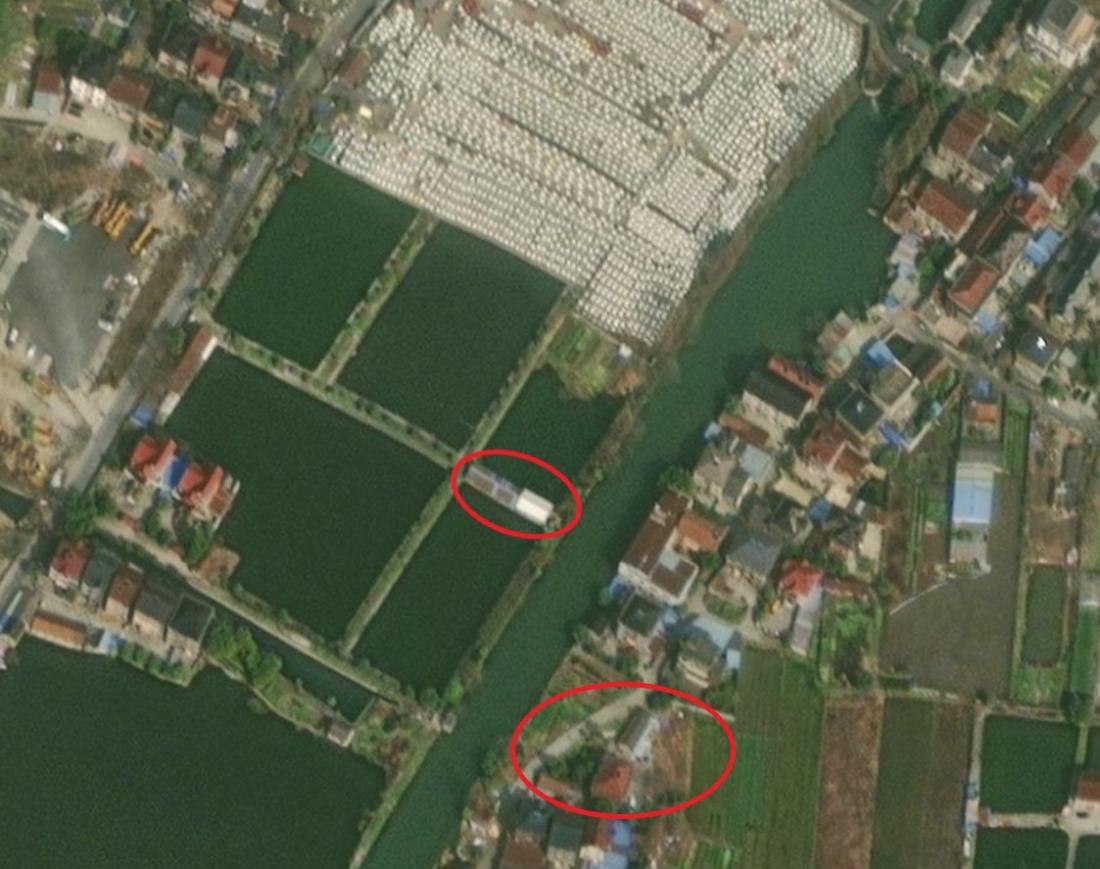
The electricity pylons visible in the Facebook post also can be found on the highway, south of the parking lot:
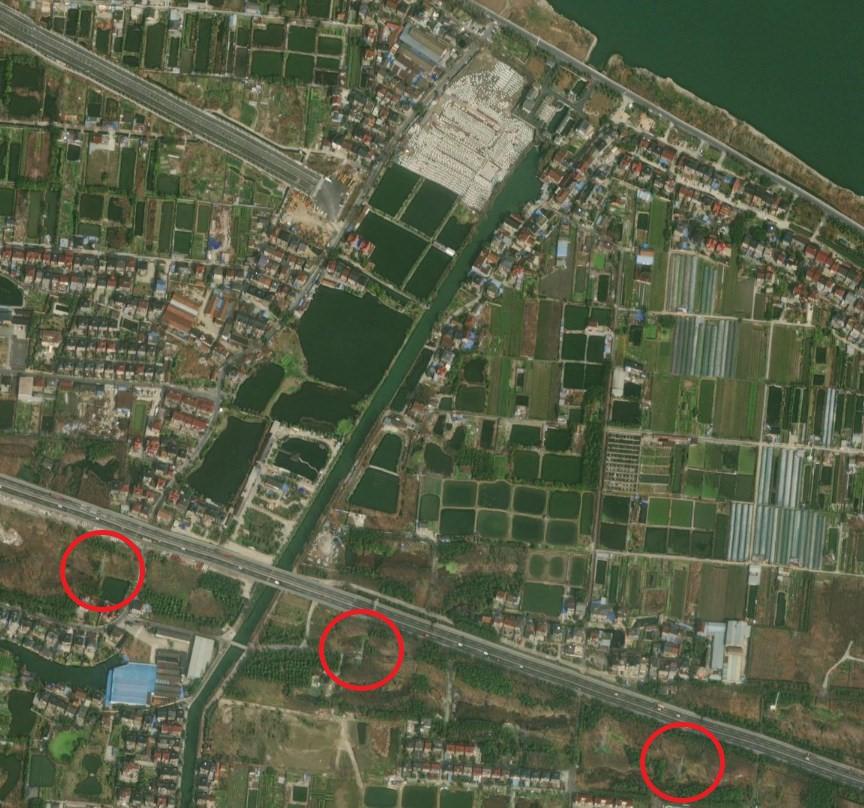
The vehicles belong to a Hangzhou-based electric car rideshare company called Microcity, subsidiarity of an electric car rental company named Zhejiang Zuozhongyou Electric Car Service Limited, according to the company's former brand manager.
"The cars in the photo belonged to Hangzhou Microcity,"Lou Gaofeng told AFP.
Launched in Hangzhou in 2013, Microcity's electric car rideshare service aimed to tackle emissions, congestion and limited parking space, according to the local government's website.
Car sharing services in Chinese have struggled to keep their business model profitable. In 2019, Hong Kong-based newspaper South China Morning Post (SCMP) reported that many firms had gone bankrupt after an initial boom in ride sharing apps the 2010s, aided by the low price of electric cars.
Chinese media reported that thousands of Microcity electric cars have ended up in parking lots on the outskirts of Hangzhou from 2019 (here, here and here).
Lou told local newspaper Hangzhou.com.cn in April 2019 that around 3,000 Microcity cars are parked in three different parking lots along the Qiantang River. However, according to the former manager of the company, not all the cars were defective.
"I had clearly explained at that time that not all of them had problems. Some of them had problems, some could still be used, others were old enough to be sold to another company and disassembled," he told AFP.
"Second, it had nothing to do with the spontaneous combustion of the battery, most of them were the first generation electric vehicles which had been produced in 2013 and even earlier and should be replaced due to technologcial progress."
Microcity's current management did not respond to AFP's enquiries on what the company plans to do with the cars in the future.
CORRECTION 15/7/21: This article was amended to clarify Lou Gaofeng's quote that the cars in the photograph were first-generation electric cars set to be replaced with newer models.
Is there content that you would like AFP to fact-check? Get in touch.
Contact us


